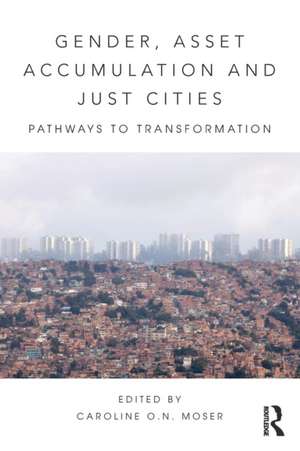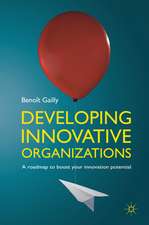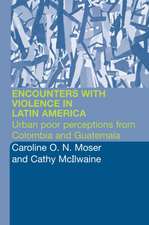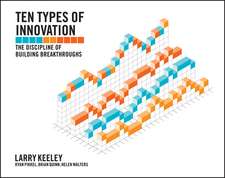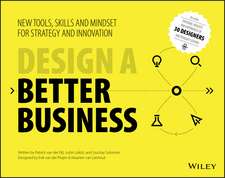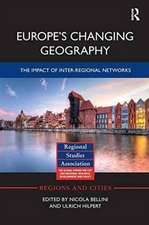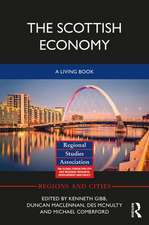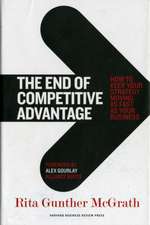Gender, Asset Accumulation and Just Cities: Pathways to transformation
Editat de Caroline O.N. Moseren Limba Engleză Paperback – oct 2015
Gender, Asset Accumulation and Just Cities explores the contribution that a focus on the gendered nature of asset accumulation brings to the goal of achieving just, more equitable cities. To date neither the academic debates nor the formulated policy and practice on just cities has included a focus on gender-based inequalities, discriminations, or opportunities. From a gender perspective, a separate discourse exists, closely associated with gender justice, particularly in relation to urban rights and democracy. Neither, however, has addressed the implications for women’s accumulation of assets and associated empowerment for transformational pathways to just cities.
In this book, contributors specifically focus on gender and just cities from a wide range of gendered perspectives that include households, housing, land, gender-based violence, transport, climate, and disasters.
| Toate formatele și edițiile | Preț | Express |
|---|---|---|
| Paperback (1) | 318.18 lei 6-8 săpt. | |
| Taylor & Francis – oct 2015 | 318.18 lei 6-8 săpt. | |
| Hardback (1) | 699.51 lei 6-8 săpt. | |
| Taylor & Francis – 5 oct 2015 | 699.51 lei 6-8 săpt. |
Preț: 318.18 lei
Nou
Puncte Express: 477
Preț estimativ în valută:
60.88€ • 63.74$ • 50.38£
60.88€ • 63.74$ • 50.38£
Carte tipărită la comandă
Livrare economică 05-19 aprilie
Preluare comenzi: 021 569.72.76
Specificații
ISBN-13: 9781138193536
ISBN-10: 1138193534
Pagini: 220
Ilustrații: 5 black & white illustrations, 14 black & white tables, 5 black & white line drawings
Dimensiuni: 156 x 234 x 12 mm
Greutate: 0.34 kg
Ediția:1
Editura: Taylor & Francis
Colecția Routledge
Locul publicării:Oxford, United Kingdom
ISBN-10: 1138193534
Pagini: 220
Ilustrații: 5 black & white illustrations, 14 black & white tables, 5 black & white line drawings
Dimensiuni: 156 x 234 x 12 mm
Greutate: 0.34 kg
Ediția:1
Editura: Taylor & Francis
Colecția Routledge
Locul publicării:Oxford, United Kingdom
Public țintă
PostgraduateCuprins
1. Introduction: towards a nexus linking gender, assets and transformational pathways to just cities 2. Female household headship as an asset? Interrogating the intersections of urbanisation, gender and domestic transformations 3. Longitudinal and intergenerational perspectives on gendered asset accumulation in Indio Guayas, Guayaquil, Ecuador 4. Key drivers of asset erosion and accumulation in informal employment: findings from the Informal Economy Monitoring Study 5. Addressing gendered inequalities in access to land and housing 6. The gendered contradictions in South Africa’s state housing: accumulation or erosion of housing as an asset 7. ‘The devil’s in the detail’: understanding how housing assets contribute to gender just cities 8. Routes to the just city: towards gender equality in transport planning 9. Gender-based violence and assets in just cities: triggers and transformation 10. The gendered destruction and reconstruction of assets and the transformative potential of ‘disasters' 11. Challenging stereotypes about gendered vulnerability to climate change: asset adaption in Mombasa and Cartagena
Notă biografică
Caroline O.N. Moser is Emeritus Professor at the University of Manchester, UK, and Advisor to the Ford Foundation New York Just Cities Initiative, USA.
Descriere
With more than half the world’s population now living in urban areas, urbanization is undoubtedly one of the most important phenomena of the 21st century. However, despite increasing recognition of the critical relationship between economic and social development in cities, gender remains an often overlooked way to understand the complexities of current urbanisation processes. In this book, contributors specifically focus on gender and just cities from a wide range of gendered perspectives that include households, housing, land, gender-based violence, transport, climate and disasters.
